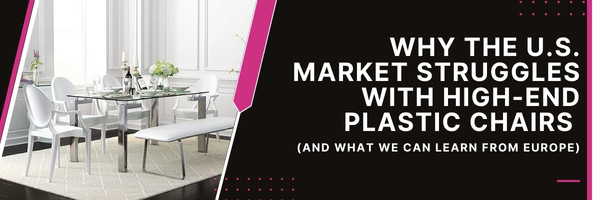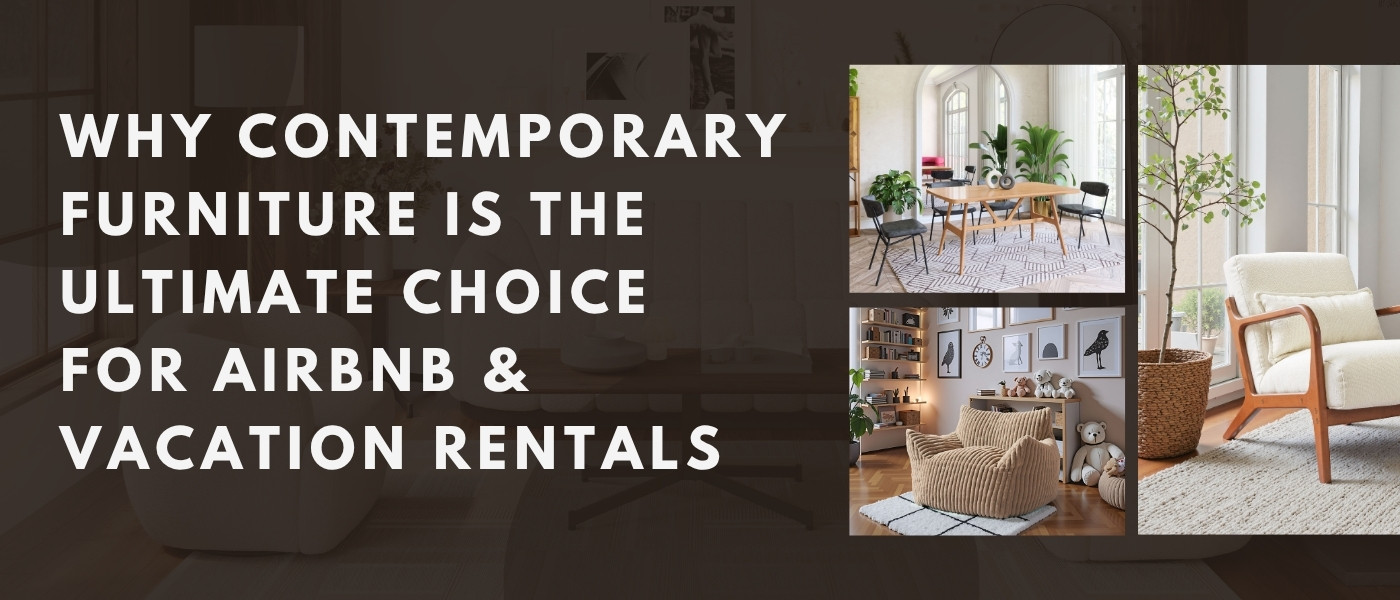Traditional Brick-and-Mortar Furniture Stores: Embracing E-Commerce for a Digital Future
Traditional Brick-and-Mortar Furniture Stores: Embracing E-Commerce for a Digital Future

In an age defined by technological advancements and shifting consumer preferences, traditional brick-and-mortar furniture stores face a critical decision. The rapid rise of e-commerce has transformed the retail industry, necessitating adaptation to avoid being left behind. To remain competitive and cater to evolving customer demands, furniture retailers must leverage their industry expertise, customer preferences, and supplier base while embracing digital strategies. By combining traditional strengths with cutting-edge technologies like SEO advertising, web platforms, and design, these stores can successfully enter the e-commerce market. In this article, we will explore the potential of such a transformation, using Zuo Modern as an example.
Understanding the Digital Landscape
The growth of e-commerce has been exponential, impacting various sectors, including furniture retail. Customers increasingly favor the convenience of online shopping, where they can browse extensive product ranges, compare prices, and read reviews from the comfort of their homes. Brick-and-mortar furniture stores must grasp the intricacies of the digital landscape to tap into this vast market.
Traditional stores possess a deep understanding of the industry, having cultivated relationships with suppliers to ensure a steady supply of high-quality products. By integrating their supplier base with e-commerce, these stores can offer a broader range of products to online customers, expanding their market reach.
Collaborating with vendors like Zuo Modern, a leading furniture manufacturer renowned for its digital expertise, can facilitate a seamless transition into the online space. Through such partnerships, traditional stores gain access to digital content and data, including detailed product descriptions and images, enhancing their online presence.
Leveraging Customer Preferences
To succeed in the e-commerce market, it is crucial to comprehend customer preferences. Analyzing data on purchasing patterns, consumer behavior, and market trends enables traditional stores to tailor their online offerings to meet customer expectations.
Data-driven decision-making plays a significant role in this transformation. By employing advanced analytics tools and customer relationship management systems, traditional retailers gain valuable insights into customer preferences. This data empowers them to curate their online catalogs and optimize their marketing efforts accordingly.
Additionally, incorporating search engine optimization (SEO) strategies enhances the online visibility of traditional stores. Optimizing website content with relevant keywords and creating engaging product descriptions improves search engine rankings, driving organic traffic and increasing conversion rates.
Harnessing the Power of Web Platforms and Design
To thrive in the e-commerce market, brick-and-mortar furniture stores require robust web platforms and visually appealing designs. Platforms such as Magento or Shopify offer customizable and user-friendly solutions that enable retailers to create engaging online stores.
Web platforms serve as the foundation for establishing an online presence. They provide essential features like secure payment gateways, inventory management systems, and seamless integration with other digital tools. Leveraging these platforms empowers traditional stores to deliver a seamless online shopping experience.
Furthermore, investing in visually appealing and user-friendly designs is essential for capturing the attention of online shoppers. High-resolution images, interactive product galleries, and intuitive navigation enhance the overall user experience, fostering customer engagement and increasing the likelihood of conversions.
The emergence of e-commerce presents both challenges and opportunities for traditional brick-and-mortar furniture stores. To remain competitive in a rapidly evolving retail landscape, these stores must leverage their industry expertise, customer preferences, and supplier base while embracing digital strategies. Collaborating with vendors like Zuo Modern can provide valuable digital content and data, facilitating a smooth transition into the e-commerce market, please contact our IT Director Miguel Gonzalez.
By analyzing customer preferences and employing SEO strategies, traditional stores can tailor their online offerings to meet evolving demands. Robust web platforms and visually appealing designs further enhance their online presence, attracting and retaining customers in the digital realm.
Ultimately, the successful integration of e-commerce into the operations of traditional furniture stores requires a holistic approach that combines the strengths of the industry with digital innovation. By embracing this digital future, these stores can not only survive but thrive in the ever-changing retail landscape.




